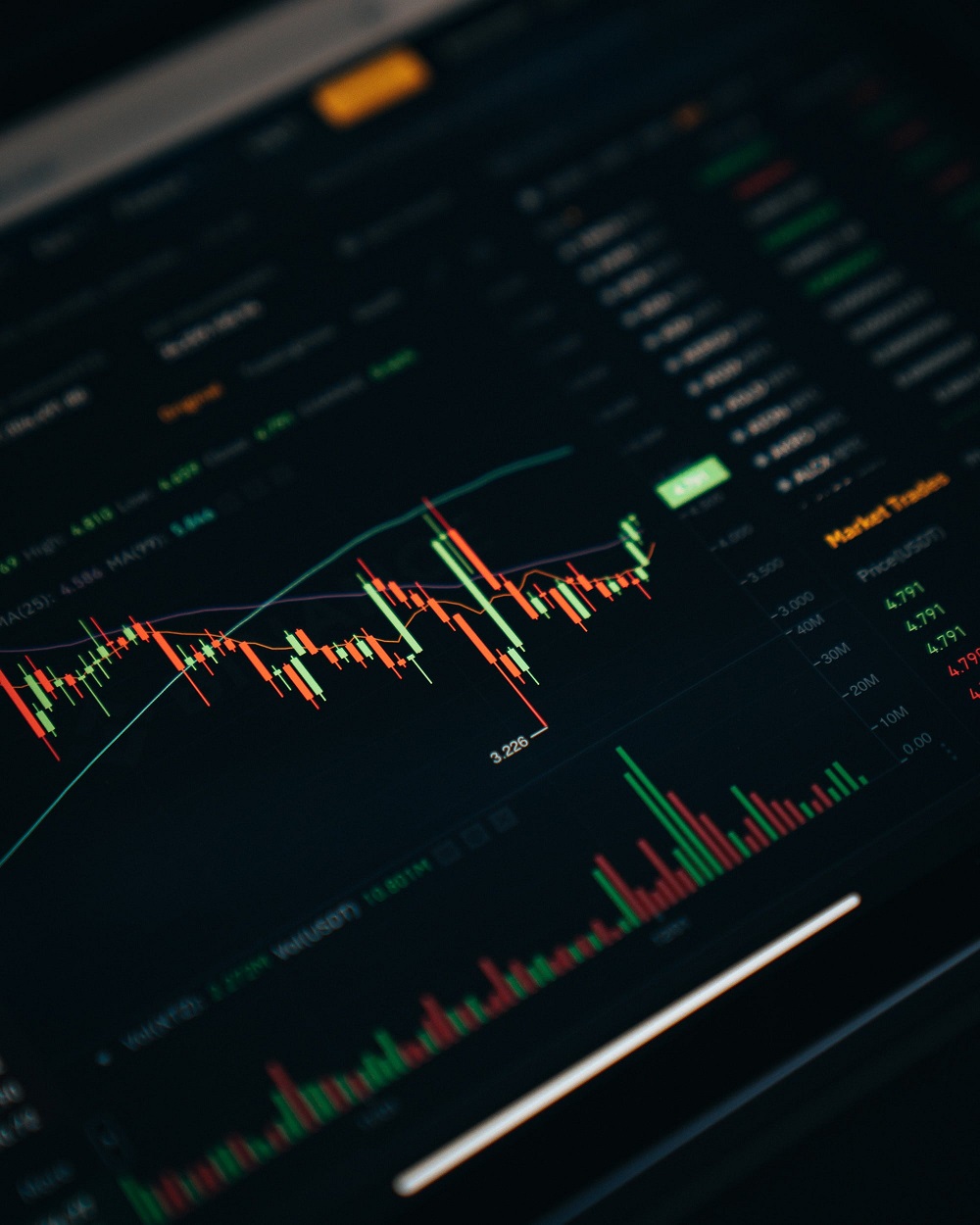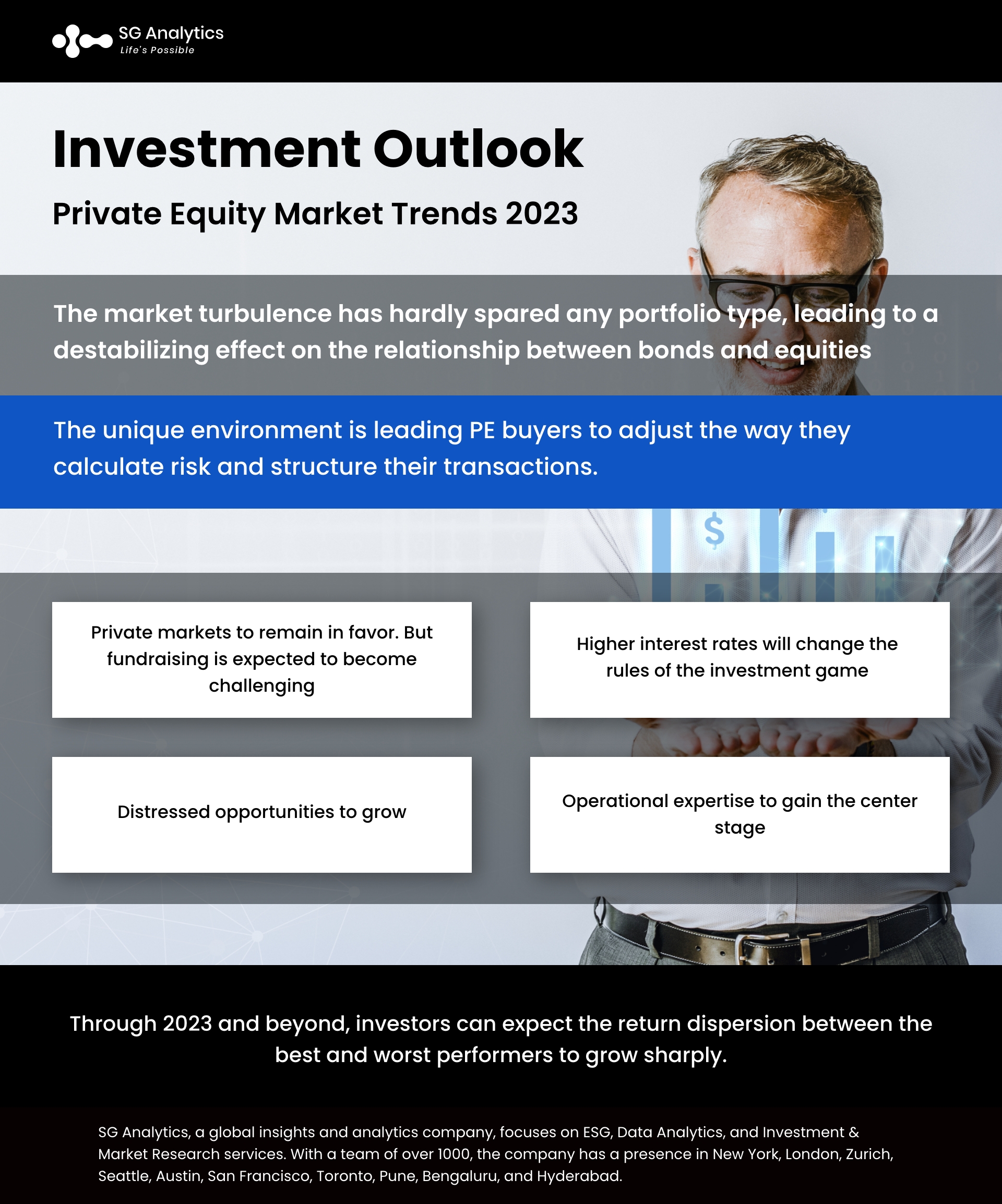The market turbulence has hardly spared any portfolio type. It has led to a destabilizing effect on the relationship between bonds and equities. Not only has it weakened the impact of the traditional investment model, but it is also reinforcing new policies and adding alternative assets to foster diversification and drive returns.
Even the private equity landscape witnessed moderate dealmaking in 2022 as firms took account of the effect on existing portfolio companies. The focus was majorly on business resilience to mitigate the price expectations gap between buyers and sellers following a market reset. The first half of 2022 will witness global deal values dip by 18%, according to figures issued by EY figures. This rise in accelerated global technology adoption and growth in demographic shifts is leading to changing lifestyles and preferences.
Due to this reason, flexibility means that organizations are turning to the private market for capital, thus creating opportunities to cultivate high-quality assets at attractive multiples. While companies are aware of the short-term uncertainty, they are exploring new opportunities to invest in long-term megatrends, and investors are playing a pivotal role in redirecting the capital flows to finance this transition.
Read more: How are Impact Investors Tackling the New Opportunities in Climate Investment?

The new environment is leading PE buyers to adjust the way they calculate risk and structure their transactions. General partners are now building buffers into their capital stack, and leverage shifts away from companies. While the increased cost of debt is likely to slow deal activity in the short term, the demand for strategic capital will enable them to execute transactions that can achieve growth. PE multiples will remain below public equity, and they will offer attractive entry points to companies raising capital. It will facilitate investors' concessions for downside protection in the form of liquidation preference.
Significant Highlights
-
The new era of higher inflation, rates, and volatility has roiled the equity markets, thereby creating opportunities for private markets.
-
With the role of private assets in a portfolio becoming more important than ever, investors are eyeing to take advantage of significant trends.
-
Private credit is expected to expand as public financing is retreating and more organizations are looking to seek new capital.
-
Infrastructure is also expected to benefit from the rise in investment in sustainable energy as well as energy security. It will play an equally vital role as a non-correlated inflation hedge.
-
Real estate values are also expected to reset in response to the changing demand and higher financing costs. This is leading to disparate returns across different sectors.

Amid significant repricing in investment markets, investors are assessing the value of illiquidity risk. Private credits present greater certainty of higher levels of cashflows, along with other features that can assist in hedging the effects of economic turbulence. With the private market valuing at moderate levels, they have historically outperformed growth expectations by achieving multiple expansions. In the current market, investors are focusing on company-specific actions and opportunities. For new investments, it can be anticipated that more corporate carveouts are likely to take place as companies are refocusing on core businesses across fragmented industries. However, in 2023, the sector can expect capital calls to pick up as new investment activities, as they had remained slower in recent years. The sector will precede a return to powerful realizations.
Read more: Investing In Renewable Sector: Identifying the Top Renewable Energy Funds in 2023
-
Private Markets to remain in Favor. But Fundraising is expected to become Challenging
In the challenging economic environment, applicable strategies are expected to be more value oriented. These include buyouts, infrastructure, private credit, and distressed and restructuring specialists. The energy transition in real assets and infrastructure is offering a strong tailwind. The position of private credit in the capital structure implies that it is usually less risky than equity, as it offers investors regular cash payments and shorter investment horizons. Many investors are now closely eyeing more value-oriented buyouts by positioning their portfolios for value-oriented growth. Individual investors also share a similar sentiment.

-
Higher Interest Rates Will Change the Rules of the Investment Game
The abundant credit available from the end of the global fiscal crisis is enabling many firms to enhance returns using significant leverage. In 2021, debt multiples in deals reached 6x earnings, considered one of the highest in over two decades. Yet debt became more costly with interest rate rises. The Federal fund rates in the US increased from nearly zero to over 4% in December 2022. Lending conditions were further tightened due to the end of quantitative easing programs. The sector started experiencing liquidity issues and falling valuations in certain portfolio companies as recessionary earnings reduced.
-
Distressed Opportunities to Grow
The number of turnaround and distressed deals is expected to rise through 2023 for both credit and equity. Some companies that function come under financial and operational pressures will experience the blow. A recent S&P report predicted that the trailing 12-month default rate is set to rise between 1.75% and 6% by the end of 2023.
Read more: Forecast: Top Venture Capital Market Trends In 2023

-
Operational Expertise to Gain the Center Stage
In the absence of rising debt and valuations, private equity managers are reducing their reliance on financial engineering and focusing on operational improvements to create value for investors. The areas of focus include cost control, workforce, and supply chain optimization, risk management, and climate awareness. Institutions are willing to invest in and deploy enterprise technology while fostering process automation in their operation to increase efficiency. This emphasis is therefore shifting from growth to profitability, thereby creating opportunities for buyout firms. Investment teams plan to manage margins the right way and determine the most profitable ways to grow. That can do wonders for institutions that have gotten into the mindset of growth.
Through 2023 and beyond, investors can expect the return dispersion between the best and worst performers to grow sharply. Investors experienced and skilled at supporting portfolio companies will enable them to build through these periods of uncertainty and gain strong results.

Key Takeaways
-
Strategies to tackle the rising resilience to inflation, like value-oriented buyouts, infrastructure, and private credit, will benefit as investors are weighing the prospect of recession.
-
While higher interest rates will affect valuations and debt quantum in private equity deals, this will onset value creation via operational improvement for the generation of strong returns.
-
Secondary strategies will likely gain due to the current volatility in public markets and increased liquidity needs. Investors will explore new portfolio rebalancing possibilities, and institutional investors can face the denominator effect.
-
Investments may be more muted through 2023. However, there will be attractive buying opportunities for investors as they will be seeking new opportunities to grow their portfolios.
Read more: How is Multi-stakeholder Assessment Helping to Create Long-Term Sustainable Value?

Final Thought: What is in Store for 2023 and Beyond
With the past year witnessing geopolitical conflicts, an energy crisis, soaring food prices, and turbulent market trends, 2023 was deemed a year of constant turmoil for investors. It also showed tailwinds for private market investors. The looming fear of inflation, low rates, and globalization have transitioned the landscape into a new era of high inflation, rising rates, and supply-driven economies. While the environmental conditions are still complex and uncertain, many developed nations are preparing themselves for the possibility of a recession.
Private equity is now forecasting around 2.2% global GDP (Gross Domestic Product) growth in the year 2023. Some investors are even predicting that a global recession is likely on the cards. With this sentiment clearly on the minds of market participants, investors are expecting a downturn that can last between one and two years. That said, there are indications that global inflation could have peaked in the concluding months of 2022. The year did offer some glimmers of hope, and 2023 is expected to witness modest improvement in the economic outlook.
With a presence in New York, San Francisco, Austin, Seattle, Toronto, London, Zurich, Pune, Bengaluru, and Hyderabad, SG Analytics, a pioneer in Research and Analytics, offers tailor-made services to enterprises worldwide.
A market leader in Investment Research, SG Analytics assists in strengthening investment decisions by leveraging custom research support. Contact us today if you are in search of an investment research firm that offers tailored research support across a broad range of asset classes.









